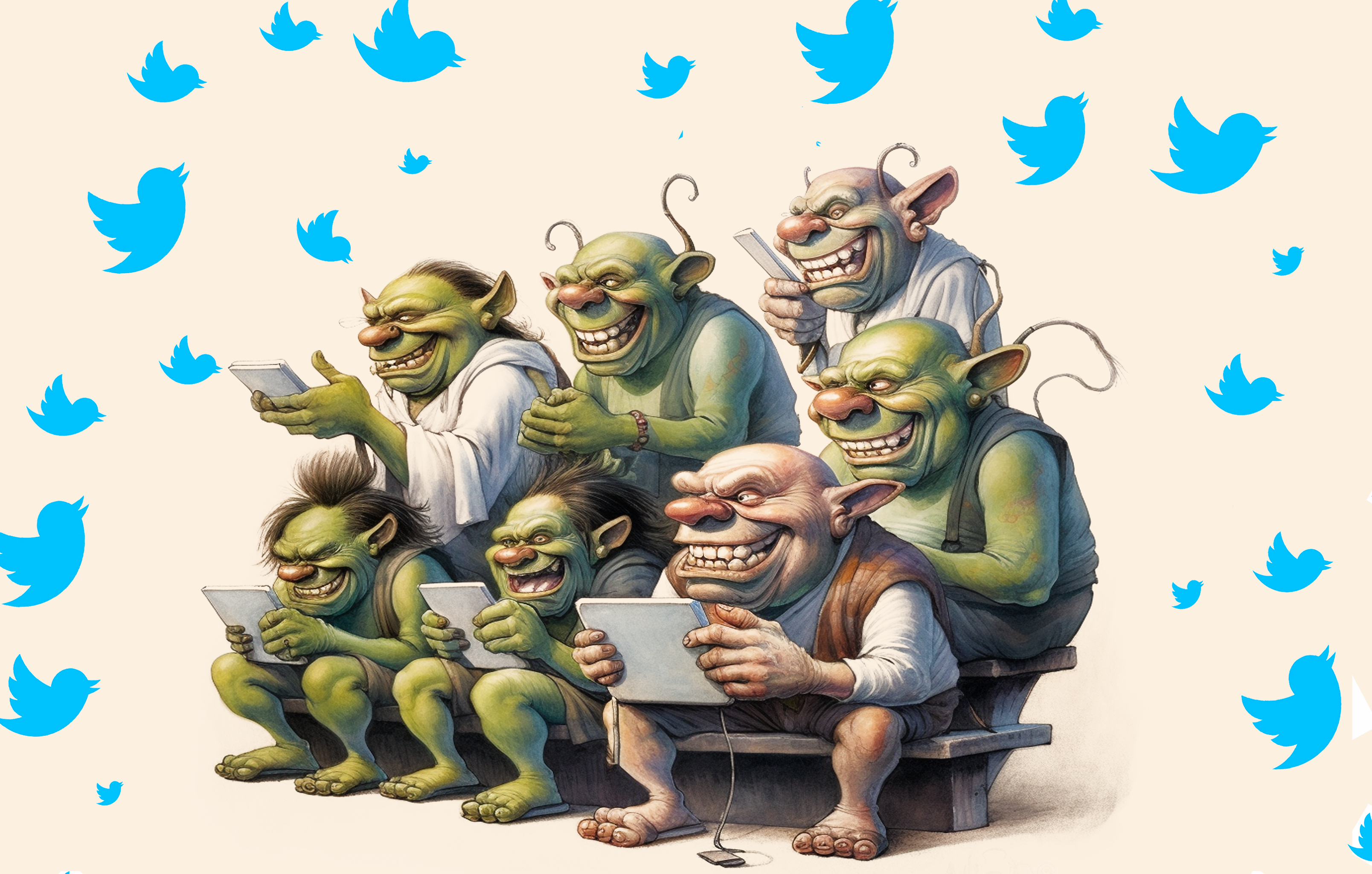Internet trolls, those pesky online folks who use inflammatory rhetoric to get a rise out of people, are a given in digital communication. And in Arkansas, sometimes the trolls are government officials in positions of power. Let’s zoom in on political trolling and why it’s worth knowing how to spot the ogres.
What’s the point of trolling in politics?
In the kerfuffle over the LEARNS lawsuit regarding the emergency clause, the tweets flew fast and furious. All sides partook, but some took on a distinctly troll-y air. We want to add to our piece on propaganda because the two concepts are intertwined and discuss what political trolling is, how to recognize it, and why it matters.
What is Political Trolling?

Trolling doesn’t have a strict definition, but in general, it’s when someone is overly negative online toward another person or organization, usually in an especially inflammatory or offensive way.
Trolling isn’t just pointing out that there’s a disagreement in policy, it’s pointing it out while being, quite simply, mean.
It’s often used when the troll knows they don’t really have a good policy to stand on, so they resort to attacking someone personally.
Who Lives Under the Bridge?
How do we recognize a troll? If the individual is responding with cruelty, sarcasm, or disinformation to a post or comment made in good faith, then they’re probably a troll. That’s essential to note; often trolls disguise their efforts to spread disinformation in trolling posts.
The cruelty and the sarcasm serves to distract, but the misinformation remains. This kind of disinformation works because it operates on a few different levels: frustrate, distract, disinform. So who lives under the bridge? People with agendas they don’t want to openly discuss. People who want to avoid having a real conversation about policy, data, and values.
Recognizing a troll can take some practice, but the most important part is remembering that a troll wants to create anger and division. If a post appears that triggers an immediate emotional response, that should raise suspicion.
What’s the Point of Trolling?
Trolling spreads propaganda, but does so through a roundabout way. Alexa Henning, for example, just tweets straight propaganda. But when accounts like this and this troll (especially in our mentions), they’re doing something intentionally disingenuous.
Trolling propagandizes because the person getting trolling tends to react emotionally and immediately defends themselves from the cruelty and sarcasm. As a result, misinformation spreads.
Trolls want to create anger and distract their targets so the targets aren’t careful in their responses. That’s why some people troll; they cause anger to disinform.
But there’s a more insidious kind of troll, too. Anyone who’s been on the Internet for a while expects this first kind, but when those in power troll those who aren’t, it’s an abuse of power. Rep. Aaron Pilkington likes to be rude on his official account. We imagine we could find more egregious examples further back, but there’s only so much love for Ron DeSantis we can take. Our elected leaders shouldn’t be using the pulpits we put them on to bully their constituents. Or anyone, really. This is abusing the position of trust we put them in.
We think Arkansans should have more respect for their fellow citizens than this.





